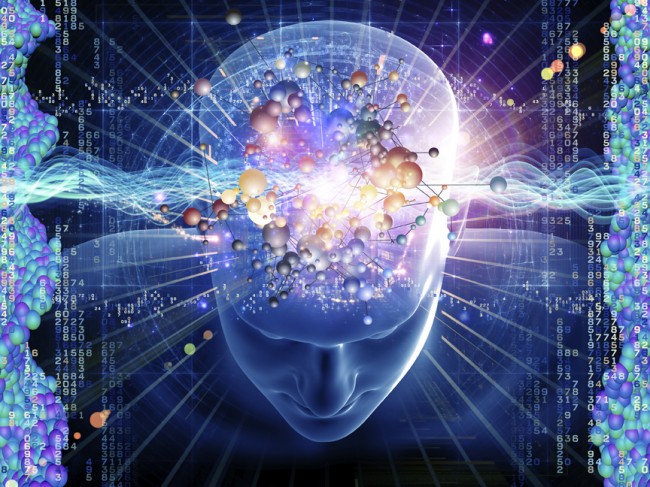Added by Nathan Cranford on February 13, 2014.
Saved under Evolution, Nathan Cranford, Quantum Physics, Robots, Science
Tags: evolution

Evolution by means of natural selection is as widely accepted by biologists as the fact that the earth revolves around the sun. Despite the success evolution has had, their remains one irritating feature within the human make-up for which the theory of evolution proves short: consciousness. Since the 17th century, there has been a smooth continuity in deducing the principles of chemistry from the principles of physics, the principles of biology from the principles of chemistry and so on and so forth. Yet the chain of scientific reductionism has experienced a chink that cannot be filled. Consciousness—that irritating, inner subjective experience that is all too familiar but much less understood—seems to view the scientific paradigm from the outside in rather than from the inside out. Is consciousness dictated by the principles of quantum mechanics, does it have a biological basis, perhaps the product of social conditioning or none of the above?
From evolutionary history, it is known that the human cranium rapidly swelled up like a balloon. Accompanying this swelling, consciousness seemingly “popped” into existence. Yet it is difficult to determine why exactly natural selection seized upon the swelling of the brain. Large brains require lots of energy and have made the birthing process all the more difficult. In addition, consciousness does not necessarily need take up much space. Some people only have a single brain-hemisphere and are capable of performing day-to-day tasks.
Some psychologists and linguists have suggested the human brain is programmed to acquire language. After all, language is the defining trait that distinguishes humanity from the rest of the animal kingdom and is seemingly acquired with ease during the first few years of life. Just as evolution engrained spiders with the instinct to spin a web, so too has evolution engrained human brains with the instinct to “spin” language. Through this instinct, man became aware of his own words and thus, conscious.
The problem with this suggestion is that it merely sketches a model of cognition rather than consciousness. Cognition consists in certain computation faculties, such as self-reflection and individual awareness. Yet consciousness consists of something far more mysterious: individual experience, such as the sensation of red. In particular, consciousness consists of what it is like to be something. Although person A might know everything there is to know about person B, person A still does not know what it is actually like to be person B. In a sense, there is a metaphysical barrier between minds that no amount of scientific data can suffice.
In an effort to better understand consciousness, the human brain has been handed over and cracked open by artificial intelligence engineers (AI). AI engineers take a mind, break it down and attempt to re-build it using artificial material. This is known as the Humpty Dumpty problem. If consciousness is the result of information processing at the level of the brain, then AI engineers reason that information can be duplicated onto a computer hard drive. The problem is that attempts by AI engineers to artificially simulate consciousness have been an abysmal failure. Some scientists have suggested AI engineers are a head of themselves. In particular, AI engineers don’t have a biological basis for the mind in the same way doctors have a biological basis for the heart. In short: AI engineers are trying to simulate consciousness without having a blue-print of what consciousness is.
Others have argued that consciousness is dictated by the principles of quantum mechanics; however, most neuroscientists tend to be of the view that the gap between the sub-atomic world and large-scale macro-systems is too large to bridge. Others have argued that if mental states are derived from brain states, then it follow consciousness is a collection of “unconscious” states, thus leading to the provocative conclusion that consciousness does not exist! Whether it by engrained instinct, artifical engineering or quantum mechanics, the evolution of consciousness remains a vexing problem shrouded in mystery.
By Nathan Cranford
No comments:
Post a Comment